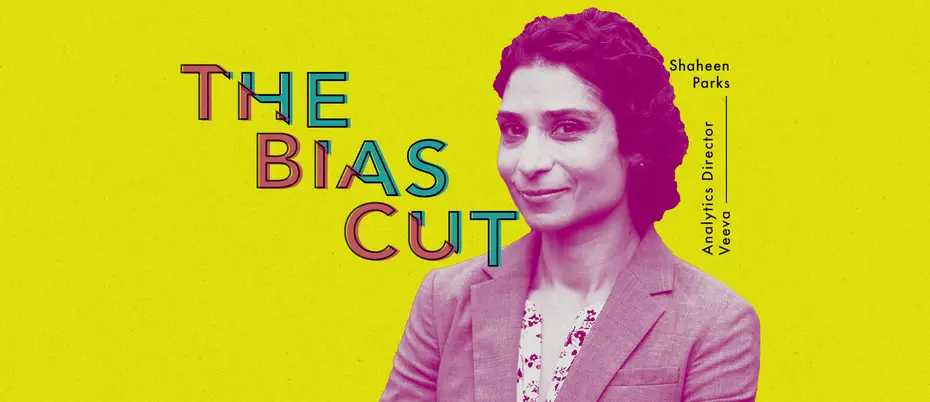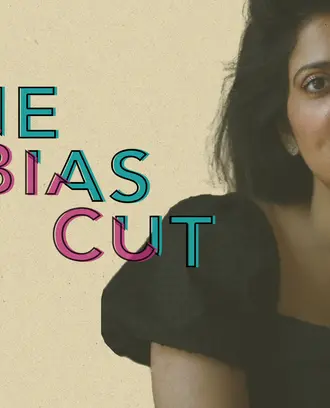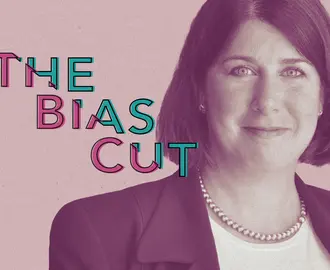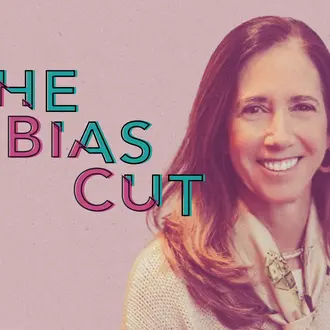The Bias Cut
How this analytics director leads her team with transparency
“Sometimes working harder doesn’t lead to better results; you have to work smarter to be effective.”
A 2019 women’s leadership study from LeanIn.org and McKinsey & Co. found that American women held less than 40% of corporate management positions, and women continue to fight underrepresentation when it comes to board positions and CEO roles. They also face gender bias, harassment, and opposition to their management styles.
Here’s how one Sloan alumna has pushed back on those statistics and used what she’s learned along the way to help those behind her.
Shaheen Parks, MBA ’04, analytics services director at life science software company Veeva.
In what ways is your professional life as a woman in the workplace different from how you imagined it would be when you started your career?
When I started in my career, I thought gender bias was in the past; I thought that qualifications and aptitude would be all that mattered. Now I know better about the many other factors that impact professional success, gender among them. I also thought I’d be a “real” engineer who built physical things! Instead, most of my career has been linking business issues and technical expertise.
Who was an ally or mentor for you as you’ve navigated your career? What made that person stand out, and how specifically did they help you get to the next level of your professional development?
When I was part of Forrester, I had a series of managers (both male and female) who were all both allies and mentors in my career. They all genuinely cared about me, were invested in my success, and regularly provided me with growth opportunities.
Looking back, it’s clear those behaviors were both part of each individual’s character as well as the cultural standard of that team. Having a series of caring and effective managers helped me grow, in terms of both my own management skills and in understanding the importance of creating that kind of sustained team culture.
Can you give an example of a time you’ve experienced or witnessed gender bias? How did it affect you professionally? What impact did it have on your job?
Rather than a single significant event, what comes to mind are the perpetual, almost casual comments that accumulate over time:
- When I was starting out after Sloan, the interviewer who declined to hire me because “You’ll probably just get married, have kids, and quit in 5 years.”
- The client who questioned if I was “technical enough.”
- The boss who doubted my commitment because I lived close to the office and had kids (just as he did).
- The colleague who commented, “Congrats on the promotion! I didn’t think you’d get it because you’re a woman.”
One of the biggest challenges for me has been that it’s easy to gloss over or ignore each individual event, but cumulatively it can wear you down. Recognizing this impact has helped me deal with it directly, rather than letting it subtly drag down my confidence and drive.
Certain industries are as male-dominated as ever. Where do you see progress in your own professional experience and how can we scale that throughout your industry?
I see progress primarily in pockets: more awareness of the issues, and more champions willing to call out and address the issues (both male and female). The influence of these key stakeholders goes a long way and can build momentum over time to shift company culture.
How do you support women coming up behind you?
I push to make sure the hiring pipeline includes women (often it hasn’t) and take steps to increase that proportion when needed — revising job descriptions, personal networking, and tapping professional diversity groups.
I also practice honesty and transparency with my team as much as I can. I don’t hide my personal commitments, and I ask before assuming anything about other people’s challenges and attitudes. I want my team to feel safe in being themselves and open about the tradeoffs they may be making in their own lives so that we can all perform our best at work.
What is the most difficult lesson you’ve learned in your professional life? In what unexpected ways did you grow from it?
Sometimes working harder doesn’t lead to better results; you have to work smarter to be effective. Once I really internalized this, I was able to make better choices about how to spend my time and energy to get the outcomes that I wanted.




